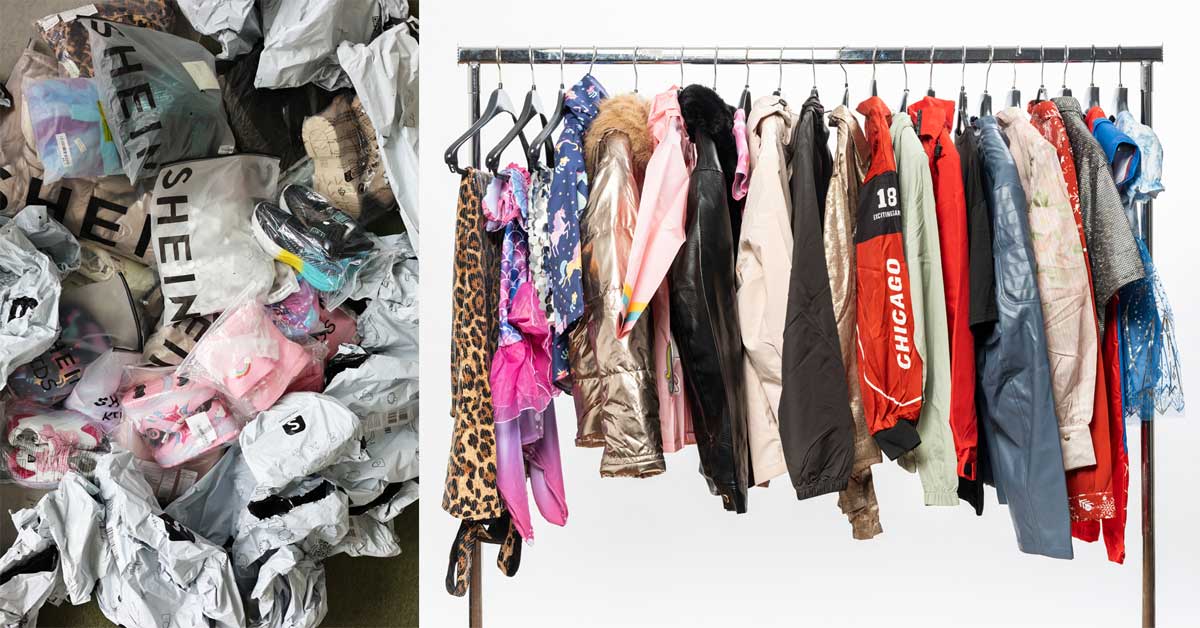

21 November 2025  Shocking Findings Shake Fast-Fashion ConsumersThe latest international Greenpeace investigation into Shein clothing, published yesterday, is likely to leave many consumers stunned. Fifty-six garments ordered from the ultra-fast-fashion platform were analysed by an independent certified laboratory in Germany – and nearly one-third contained hazardous chemicals exceeding EU legal limits. Particularly striking were outdoor jackets contaminated with PFAS, a group of substances already banned in the EU due to severe health risks. One women's jacket even exceeded the applicable limit by a factor of 3,269.These findings challenge recent claims by Shein that it had strengthened its chemical management system and expanded internal testing. According to Greenpeace, however, these measures "do not appear to be working". Items similar to previously flagged products resurfaced in almost identical form, carrying the same problematic substances. What PFAS Are – And Why They Are So DangerousPFAS (per- and polyfluorinated alkyl substances) are often used to make outdoor textiles water- and dirt-repellent. They are sometimes referred to as "forever chemicals" because they hardly degrade in the environment and can accumulate in living organisms. The tests identified multiple fluortelomeres, substances known for their persistence and mobility: they spread easily and have been detected even in remote regions.Environmental physician Hans-Peter Hutter highlighted the severity of the issue. According to him, PFAS are regulated in Europe for good reason: they weaken the immune system, can disrupt metabolism and the hormonal balance, and pose a potential cancer risk. Even small additional exposures, he noted, add to the overall chemical burden people face from various sources and should therefore be avoided. A Pattern Beyond PFAS: Multiple Chemical ViolationsAcross all tested products, eleven hazardous chemicals from five groups exceeded EU REACH thresholds, the European Union's legal limits for hazardous chemicals in consumer products. Apart from PFAS, the laboratory found phthalates used as plasticisers, heavy metals such as lead and cadmium, formaldehyde, and various aromatic compounds. In shoes, for instance, very high levels of phthalates were measured, in some cases up to 200 times above the limit. Children's products were affected as well.Greenpeace points out that Shein removes individual items once exposed but appears to replace them with near-identical models, likely sourced from the same suppliers. With hundreds of thousands of items on offer at any given time, the platform seems unable to control chemical safety across its vast supply chain. Closing the Loopholes – Greenpeace's DemandsThe report also highlights a major regulatory gap: because Shein ships goods directly from China to European customers, the buyers – not the platform – are legally considered the importers. This means consumers are technically responsible for ensuring compliance with EU chemical regulations, a responsibility few are aware of and none can realistically fulfil.Greenpeace is calling on governments to close such loopholes, enforce the EU's chemical legislation on all online platforms, and introduce an ambitious PFAS ban. The organisation also advocates for stricter rules against ultra-fast-fashion business models to reduce overproduction, pollution, and waste. A Final Thought: The "Importer Consumer" and the Reality of Online ShoppingThe situation raises a troubling question: how can consumers make safe choices when they cannot test garments themselves before purchase? With millions of parcels bypassing customs checks and entering the EU daily, individuals unwittingly become importers of products that may not legally belong on the market. The Greenpeace findings show that transparency and effective regulation are essential—because chemical safety should not be a matter of chance.Images, from left: Clothing and shoes packaged in plastic. Photo: © Jana Kuehle / Greenpeace. Right: Tested garments displayed on a clothing rack. Photo: © Fred Dott / Greenpeace |